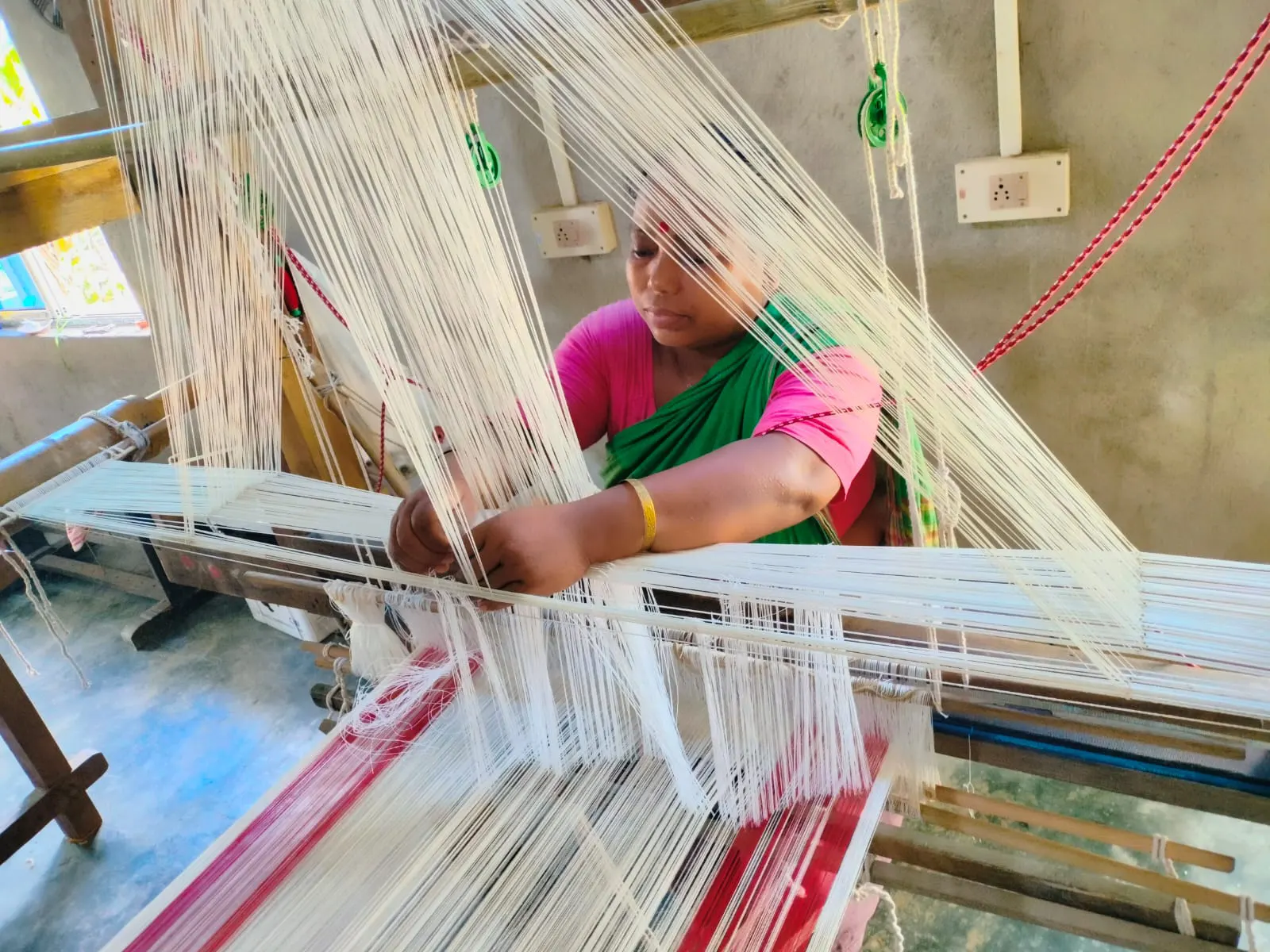
Guwahati: In a bid to strengthen the startup ecosystem in the Northeast and to support budding startups, especially those that are under two years of age, ICCo- a Guwahati- based development agency and startup incubator, have begun with a startup outreach program for the Startup India Seed Fund Scheme (SISFS) under Startup India hosted at Assam Textile Institute, Guwahati.
Speaking to Business North East (BNE), Gayatri Baruah, Chief Program Manager at ICCo, Guwahati said that “ICCo is one of the recognised incubators under the Ministry of Commerce and Industry's DPIIT-backed initiative, and we are facilitating the application, due diligence, and mentorship process for eligible startups from all domains, not just agriculture, but also healthcare, education, and especially technology-led innovations.”
“The scheme primarily targets startups under two years old and spans multiple sectors, from agritech and healthtech to education and deep-tech. It is designed to support startups at the most critical stage of their journey—with funds ranging between ₹10 lakh and ₹50 lakh,” Baruah stated.
“Startups go through an application and scrutiny phase, followed by 45 days of due diligence. Post selection, they receive mentorship on business modelling, compliance, and scale-up strategies. Around 20% of the funding is non-returnable, while the rest is to be repaid depending on the startup's business model,” Baruah emphasised.
Highlighting ICCo’s ecosystem approach, she added, “We don’t just incubate, we also build market connections. Our mentors include industry veterans, angel investors, and business strategists who support everything from packaging design to certifications and compliance hygiene. For example, many startups are unaware of critical quality certifications required to enter markets — our mentors bridge that knowledge gap. Startups will be hand-held through both technical and market-readiness aspects,” she added.
When asked about post-funding support such as marketing, Baruah confirmed, “Yes, we support startups with go-to-market strategies. ICCo has an established track record in building market linkages — whether through digital platforms or collective channels like SHG-led federations. One of our recent successes was for the Ri-Bhoi SHG cluster.”
Baruah further clarified that eligible startups must have an annual turnover below Rs 100 crore. Each startup will be evaluated on financial viability, repayment capacity, innovation quotient, and growth potential.
Bringing Industry and Academia Together: Mentorship from Within
Also present at the event was Chitraban Sarma, an alumnus of Assam Textile Institute and currently a subject expert (Textiles) at ICCo, who stated, “Textiles is the second-highest revenue-generating sector in India, and Assam Textile Institute is a pioneering body in the Northeast. This scheme can provide the much-needed seed support for entrepreneurs in weaving, knitting, dyeing, and printing".
Sarma, who mentors both students and rural artisans under ICCo projects, emphasised the untapped potential in technical textiles, saying, “There’s an over-focus on handloom, but we are ignoring areas like geo-textiles, knitting, and spinning. Despite frequent floods, Assam doesn’t have a single geo-textile manufacturing unit. While Gujarat and Maharashtra have entire industries around geo-fabrics, Assam lags.”
“We’ve focused too narrowly on handloom. There are no geo-textile plants or cotton spinning units in the region, despite their relevance in flood prevention and garment production. Similarly, knitting-based manufacturing is almost nonexistent here,” he added, urging entrepreneurs to explore these underdeveloped areas with the help of schemes like SISFS.
ALSO READ: Bonphul Foods Founder Flags Capital Crunch in Assam’s Startup Ecosystem Amid Investment Drought
He noted that there are only two active spinning mills in Assam (Rangia and Mushalpur) dedicated to eri silk. “No spinning infrastructure exists for cotton in the region,” Sarma added, citing it as a major bottleneck. He also flagged the absence of knitting and garment units despite the rising demand for hosiery goods in Northeast India.
Ram Ch. Das, Principal of Assam Textile Institute, the host of the event, called the event a milestone in aligning academic training with real-world startup opportunities.
“Programs like this empower students with real-world exposure to entrepreneurship. ICCo’s partnership gives our students and alumni a chance to access funding, mentorship, and market linkages. It also bridges the industry-institute gap in sectors like textiles, where innovation and modernisation are urgently needed.”
ALSO READ: No Shortage of Essential Commodities; Adequate Stocks Available across the Country, said Pralhad Joshi
“Our students are being exposed to live startup case studies and incubation support. Events like this bridge the gap between classroom knowledge and business innovation. We expect many of our students to apply under this scheme and become job creators rather than job seekers,” said Das in an interview with BNE.
He also underlined the institute’s support in facilitating internships, mentorship, and technical knowledge sharing between academia and startups.
“Moreover, we want startups from the region to actively apply and make the most of this DPIIT-supported Seed Fund Scheme,” chief program manager Baruah added.
Baruah further concluded by saying, “With ICCo’s prior experience in running programs like the Assam Agribusiness Growth Lab (funded by the World Bank), we are optimistic about transforming the startup landscape in Northeast India. “Whether you’re innovating in tech, textiles, health, or any other sector — ICCo is here to incubate, guide, and connect you.”